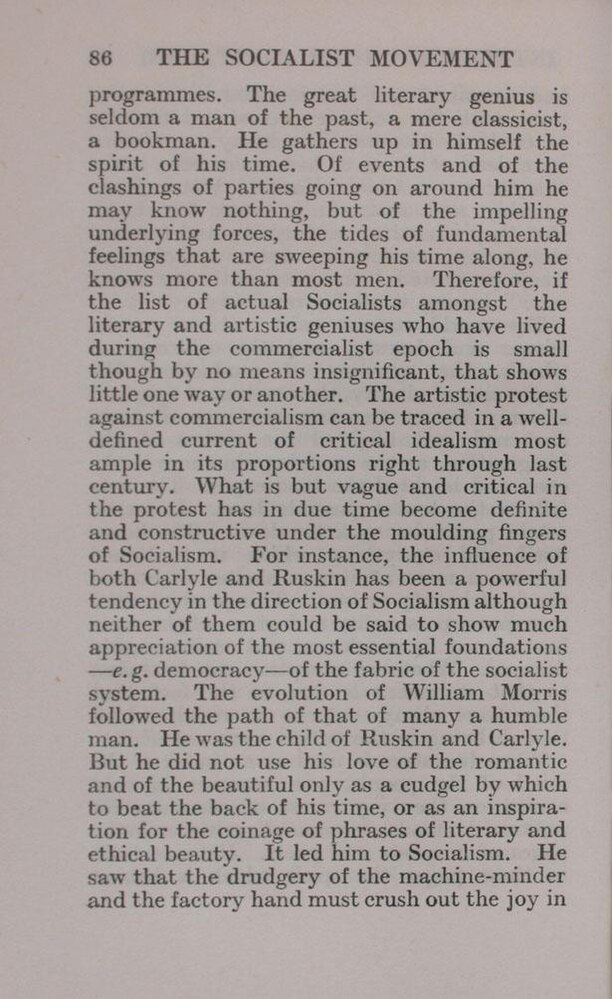programmes. The great literary genius is seldom a man of the past, a mere classicist, a bookman. He gathers up in himself the spirit of his time. Of events and of the clashings of parties going on around him he may know nothing, but of the impelling underlying forces, the tides of fundamental feelings that are sweeping his time along, he knows more than most men. Therefore, if the list of actual Socialists amongst the literary and artistic geniuses who have lived during the commercialist epoch is small though by no means insignificant, that shows little one way or another, The artistic protest against commercialism can be traced in a well-defined current of critical idealism most ample in its proportions right through last century. What is but vague and critical in the protest has in due time become definite and constructive under the moulding fingers of Socialism. For instance, the influence of both Carlyle and Ruskin has been a powerful tendency in the direction of Socialism although neither of them could be said to show much appreciation of the most essential foundations—e.g. democracy—of the fabric of the socialist system. The evolution of William Morris followed the path of that of many a humble man. He was the child of Ruskin and Carlyle. But he did not use his love of the romantic and of the beautiful only as a cudgel by which to beat the back of his time, or as an inspiration for the coinage of phrases of literary and ethical beauty. It led him to Socialism. He saw that the drudgery of the machine-minder and the factory hand must crush out the joy in
Page:James Ramsay MacDonald - The Socialist Movement.pdf/90
86
THE SOCIALIST MOVEMENT
